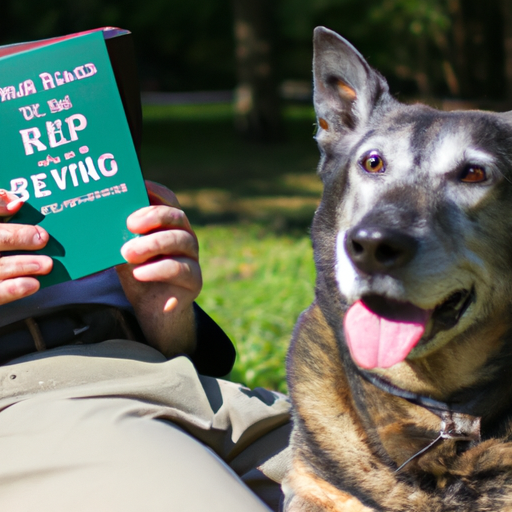You’ve likely heard of the courageous canines that have served alongside our military personnel. These dogs play an integral role in the defense of our country, providing a range of services from bomb detection to search and rescue. But what happens when these dogs retire? They too, like their human counterparts, deserve a peaceful post-service life. That’s where you, a compassionate caregiver, can step in. This comprehensive guide will show you how to adopt retired military dogs and provide the loving home these heroes deserve.
Key Takeaways:
- Understand the role and importance of retired military dogs
- Learn the process of adopting retired military dogs
- Discover how to prepare your home and lifestyle for a retired military dog
- Gain insights into the ongoing care and support retired military dogs need
Table of Contents:
- Understanding the Role of Military Dogs
- Adopting a Retired Military Dog: The Process
- Preparing for Your New Companion
- Caring for a Retired Military Dog
- Frequently Asked Questions
Understanding the Role of Military Dogs
Before delving into the adoption process, it’s important to understand the role that these dogs play in our military. These dogs, often of breeds like German Shepherds, Belgian Malinois, and Labrador Retrievers, undergo rigorous training to perform a variety of tasks. They are trained for patrol, detection, and specialized search missions, among other duties. This article provides a great overview of the duties and responsibilities of military dogs.
| Breed | Common Tasks |
|---|---|
| German Shepherd | Patrol, Detection |
| Belgian Malinois | Specialized Search, Patrol |
| Labrador Retriever | Detection, Search and Rescue |
Adopting a Retired Military Dog: The Process
The process of adopting a retired military dog may seem daunting, but it’s actually quite straightforward. The U.S. military has established programs to facilitate the adoption of these dogs, most notably through the 341st Training Squadron.
-
Complete an Application: Applicants are required to fill out an application that includes questions about your home, lifestyle, and why you wish to adopt a retired military dog.
-
Attend an Interview: If your application is successful, you’ll be invited for an interview. This allows the adoption team to further assess your suitability.
-
Home Inspection: If you pass the interview stage, a home inspection will be scheduled. This is to ensure that the dog will be going to a safe and suitable environment.
-
The Final Step: If all stages are successfully completed, you will be matched with a suitable dog.
It’s important to be patient as this process can take some time.
Preparing for Your New Companion
Bringing a retired military dog into your home is not like adopting a regular pet. These dogs have specific needs due to their training and past experiences. Preparing your home and educating yourself on these needs is crucial.
Consider the environment your dog will be coming into. Is your backyard secure? Is there a quiet space where the dog can relax and feel safe?
These dogs are incredibly active and will require plenty of exercise. Be prepared to adjust your schedule to accommodate this. Here is a helpful guide on providing adequate exercise for active dogs.
Lastly, consider the diet of your new friend. These dogs often require high-quality, protein-rich diets to maintain their health.
Caring for a Retired Military Dog
Caring for a retired military dog requires commitment and understanding. Their past experiences may have left them with physical or emotional scars that require ongoing support. Regular veterinary care, a stable routine, and a loving environment can help your new companion adjust to civilian life.
Frequently Asked Questions
- What breeds are most common in military service?
German Shepherds, Belgian Malinois, and Labrador Retrievers are the most common breeds.
- How long does the adoption process take?
The process can vary, but typically it takes several months from application to adoption.
- What does a retired military dog need?
These dogs need a loving home, regular exercise, a high-quality diet, and potentially ongoing veterinary care.
In conclusion, adopting a retired military dog is a noble and rewarding experience. With the right preparation and commitment, you can provide these heroes with the loving home they deserve.



